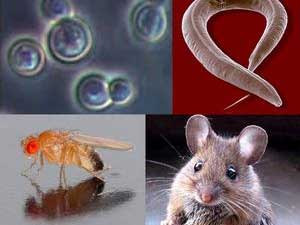Program Description
UAB’s Nathan Shock Center of Excellence in the Basic Biology of Aging announces the availability of pilot/feasibility (P/F) project awards for early stage investigators having the goal of future funding from the National Institutes of Health/National Institute on Aging (NIH/NIA). The P/F studies may focus on any area of aging research that can be supported by one or more of the UAB Nathan Shock Center Research Cores, with priority given to those examining hallmarks and/or bioenergetics of aging. Basic Alzheimer's disease studies are eligible if they contain clear focus on the basic aging rather than Alzheimer's Disease specifically.
The pilot program will provide total awards of up to $35,000. We anticipate awarding approximately four projects, depending on the budgets and number of fundable applications. Project periods will be one year, however carry-forward will be considered, pending satisfactory progress and justification. Applicants MUST utilize at least one of the UAB Nathan Shock Center Research Cores, as described in the Research Cores website pages.
Co-funding may be sought through partners in the network of National Nathan Shock Centers at more than one institution as part of one application. Each applicant MUST consult with Research Development Core leaders to provide direction in utilizing local UAB and National Shock Center Cores. Please see application submission contacts below.
Eligibility

The awards are intended to support NIH-eligible scientists to obtain extramural funding for aging research. We particularly encourage applications from early stage investigators (as defined by NIH) and advanced post-docs, who are eligible for F-awards, K-awards, or other career development awards.Early-stage investigators and postdocs without prior training or expertise in basic aging biology research are required to identify an established researcher to provide a strong letter of support and/or mentoring plan. Questions about eligibility may be directed to
Criteria for Review
Emphasis will be placed on scientific merit and integration with the Shock Center mission. Applications will be reviewed externally by national experts in the field of aging biology. Proposals will be evaluated on the basis of:
- Significance, methodological approach/feasibility, scientific merit, and innovation
- Relevance to the Shock Center mission and use of Shock Center Cores
- Potential to result in subsequent larger NIH/NIA funded projects. There is a separate section to justify the project by outlining how the pilot will provide data that are needed for the larger grant application.
- Budget and timeline appropriateness. Core consultation is particularly requisite for this aspect.
Allowable Costs
- The proposed budget must be fully justified for how they directly advance the project specific aims. While $35,000 is the maximum budget, lesser amounts should be requested as appropriate and justified by the project aims and scope
- Travel, general purpose office equipment, food are not allowable costs.
- Principal Investigator salaries are not allowed, however funds for a research assistant or technician may be permitted if required for the work.
- Capital equipment (items costing more than $5,000) is not an eligible expense.
- Facilities and administrative “indirect” costs (IDCs) are allowable, however the total cost (direct and indirect research costs) of a project may not exceed $35,000, and projects with IDC components of the budget will be de-prioritized proportionately. The RDC can advise on strategies to minimize IDCs.
Required Documentation and Guidelines
RFA Release Date:
December 20, 2024 (revised February 7, 2025)
Submission Deadline:
March 31, 2025
Start Date:
July 1, 2025
Applications will be accepted until midnight March 31, 2025. Please click the link below to apply.
https://uab.infoready4.com/#freeformCompetitionDetail/1964937
Please follow the guidelines. Incomplete proposals or those not following the guidelines shown below will not be reviewed. Interested applicants are required to consult with the UAB Nathan Shock Center Research Development Core, and may reach them by email,
Formatting requirements:
- All text should be written in Arial 11 point font with 0.5 margins (top, bottom, left, right)
- Figures and tables should not contain text with font sizes below 9 points
- Final grant proposal document should be submitted as a single PDF file.
- The itemized budget should be included as part of the PDF, and also uploaded separately as an excel file.
Required documents and page limits:
- PROPOSAL FACE PAGE (1 page maximum)
- Proposal title
- PI/PIs -- name, degree, position, academic institution, department/unit
- Other Key personnel — name, degree, position, department/unit
- Proposal Abstract (30 lines maximum)
- PROPOSAL APPROACH (4 pages maximum)
- Specific Aims (1 page maximum)
- Research Plan ( 3 pages maximum)
- BUDGET & BUDGET JUSTIFICATION (2 pages maximum), including a brief summary of consultations with the cores, and the resulting scientific and budgetary justification for the work proposed to be conducted by the cores.
- BIOSKETCHES (PI/PIs and Key personnel)
- REFERENCES (1 page maximum of relevant bibliographic references)
- LEVERAGING THE PILOT PROJECT FOR ADDITIONAL FUNDING. Statement about the timeline and anticipated sources of publications and additional funding (e.g., NIA R01, F-award, K-award and/or other) that the applicant/awardee could acquire with successful completion of their Pilot Project.
Application Submission Contacts
The UAB Nathan Shock Center Research Development Core (RDC) administers the Pilot Grant Program and is the primary point of contact for interested applicants. Initial inquiries and/or questions about the application process should be directed to the RDC,
UAB NSC RDC Leader:
John L Hartman IV, MD
Telephone: 205-996-4195
Email:
UAB NSC Program Director:
Janice Phillips
Telephone: 205.934.8790
Email: